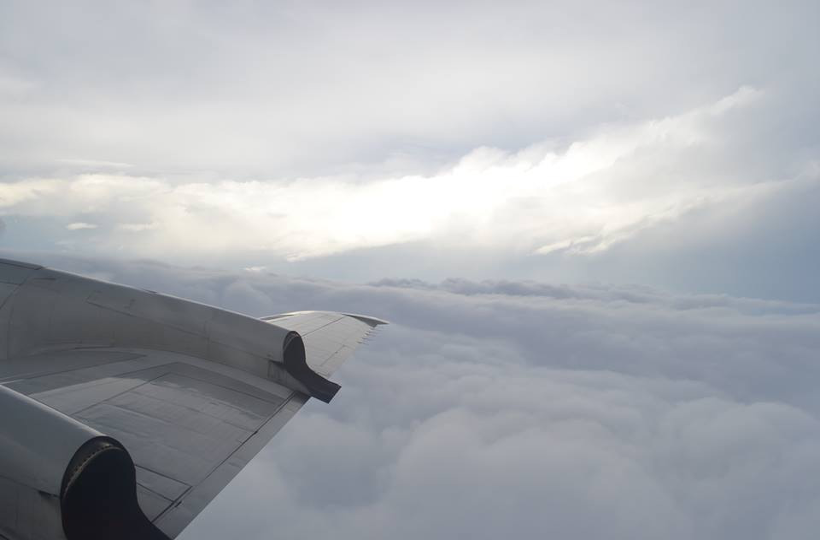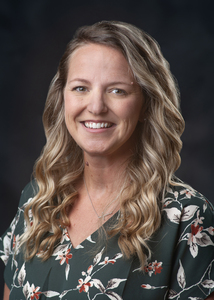
Welcome!
A little about myself:
First about my academic history: I have a BS in Meteorology from the Florida State University and my PhD in Meteorology and Physical Oceanography from the University of Miami's Rosenstiel School for Marine and Atmospheric Science. During my Ph.D, I examined how the upper ocean characteristics of the Caribbean Sea and distinct features, such as the Amazon-Orinoco river plume and the presence of a barrier-layer, play a role in air-sea interaction during tropical cyclone passage.
I was an NRC postdoctoral fellow at the Naval Research Lab, Monterey from 2018 to mid 2021 investigating the role of air-sea interaction in tropical cyclone intensification using the Navy's coupled tropical cyclones model (COAMPS-TC) in addition to a suite of insitu and satellite measurements. Currently, I am an assistant professor at Mississippi State University in the Department of Geosciences with a joint appointment in the Northern Gulf Institute.
Although I love my career I also have a life outside of work! I am a wife to Michael and mama to a sweet baby boy, Corbin, and fur baby, Huck. I enjoy going fishing, boating, trail riding on 4X4's, hiking, cooking, and taking in all of nature during my evening walks. I love to travel and see all parts of the U.S. and the beauty that is right here in the 50 states! I have driven cross-country 3 times during my moves to different positions and really like seeing the nature and cultures across the U.S. My love for nature really drove my passion for my career but it also helps to connect the creation with my Creator. All parts of what I do as a career and what drives me to pursue it each day (as well as the amazement of nature) connect back to God and His love for us through His Creation. Learn more about how my faith and research connect here.
Research
Hurricanes, Oceanography, & Air-Sea Interactions
My research interests & techniques include:
My expertise lies in air-sea interaction and the role of upper ocean processes on air-sea exchange, tropical cyclone air-sea interaction and its influence on the atmospheric boundary layer, the influence of salinity stratification on air-sea fluxes during tropical cyclones, the effect of surface ocean waves on air-sea interaction in TCs, and the influence of air-sea interaction on atmospheric boundary layer stability and convection
My research philosphy attempts to identify atmospheric and oceanic boundary layer interactions holistically, especially in tropical cyclones. Throughout literature, research approaches towards this topic lack holistic treatment to a fully-coupled problem. Atmospheric literature indicates the importance of SST to atmospheric boundary layer instability within TC environments but neglects examination of ocean processes that mitigate SST and air-sea flux into the boundary layer. Ocean literature thoroughly examines ocean processes within the context of TC environment but few examine how these implications extend into the atmospheric boundary layer. While complex, I believe it is fortuitous to bridge the gap between meteorology and oceanography in an attempt to better understand tropical cyclone intensity change.
I have experience in utilizing both observations and numerical models for my research. I am most familiar with insitu atmospheric and ocean expendable instrumentation deployed from aircraft, such as dropsondes and ocean profilers like ALAMO and AXBTs/AXCTDs/AXCPs, moored oceanic buoy data, Argo floats, satellite data that include atmospheric moisture and winds, and ocean measurements such as sea surface temperature, salinity, and currents. I am familiar utilizing simple idealized mixed layer models up to fully coupled ocean-atmospheric models.
My current projects include:
Teaching
Courses
Current Professional Service Roles
Research Opportunities
Postdoctoral Researcher: I am seeking a postdoctoral researcher that is interested in working on coupled tropical ocean-atmospheric-wave processes and modeling, particularly in tropical cyclones. Areas of interest are in coupled air-ocean-wave processes or landfalling TC air-ocean-land interaction. Other areas of interest such as tropical air-sea-land interaction pertaining to coastal environments or the Maritime continent or tropical air-sea interaction in areas of high oceanic variability.Preferable candidates will have some general knowledge or experience with coupled numerical modeling and high performance computing to utilize in research. Funding is available for 12 months with opportunity of extension. Funds for conference travel are included. If interested, please send your CV to johna.rudzin@geosci.msstate.edu with the subject "Postdoc Interest"
Graduate Students: I am continually looking for motivated MS or PhD students that are interested in tropical cyclone-ocean iteraction, air-sea interaction, upper ocean dynamics, coupled tropical meteorology. Students must have a bachelors degree in meteorology, atmospheric science, or physical oceanography (physics or computer science is also accetable), be willing to learn about interdiciplanary topics, be self-motivated, and know basic Linux-based commands. Ideal candidates will have some type of undergraduate research experience, have conducted basic coding in a scientific language (Fortran, Python, Matlab, Grads, NCL, IDL etc). Please send your CV or resume to johna.rudzin@geosci.msstate.edu with the subject "Graduate Student Interest". Funding is available through Graduate Teaching Assistantships and Graduate Research Assistantship (GRA when funding is available). Please visit https://www.geosciences.msstate.edu/graduate/ for more information on our graduate program and https://www.grad.msstate.edu/apply for application information and deadlines
Academic Advising
Undergraduate Advising:You will not be released to registered for courses until you meet with me to review your courses for the upcoming semester. Advisees will be emailed a link to schedule an appointment one week prior to pre-registration advising. Before your advising appointment, please (1) check your DegreeWorks audit to identify which classes are still necessary for your major/concentration, (2) compare with the sample curriculm for your major/concentration overall and for the particular semester of interest, and (3) use the instructions found here to create a Registration Plan in Banner for us to review. Bring this information and/or a print out of your sample Registration Plan with you to your appointment.Graduate Advising: On-Campus Graduate students should be added to the "Geosciences On-Campus Graduate Student Information Hub" where most information regarding policies are posted. Links to the Geosciences Graduate Handbook and other important links are also posted there. If you have not been added, please email the Geosciences Graduate Coordinator. New graduate students of mine are encouraged to fill register and thoughtfully craft a Scientific Individual Development Plan (link below) to help plan thier graduate program as well as help identify thier future career goals.
Contacting Me
- Office Phone: (662) 325-1590
- Email: johna (dot) rudzin (at) geosci (dot) msstate (dot) edu or click on email icon on bottom-right side of website
Office location: 214 Hilbun Hall, Mississippi State Main Campus
